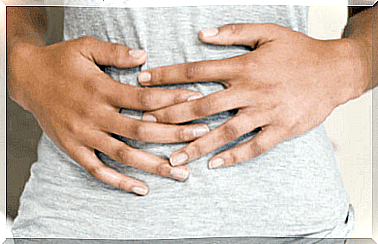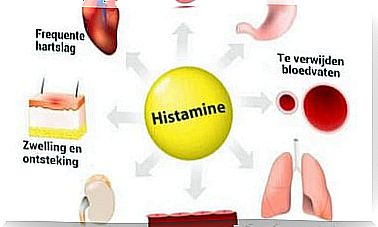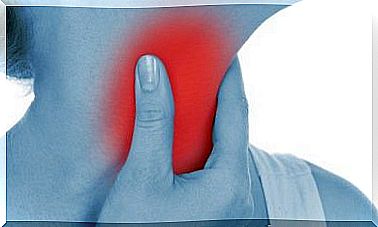6 Symptoms Of Intestinal Worms

Having intestinal worms can be a condition that upsets or even frightens many people. However, you should not be ashamed if you suffer from the symptoms.
Remember that intestinal worms are a very common disease and they are not only found in developing countries.
Consult your doctor and follow his instructions to improve your health quickly. Here are some symptoms that may indicate the presence of parasites in your body.
What are intestinal worms?
Intestinal worms or parasites are organisms that live in and feed on another organism. Thus, intestinal worms are organisms whose survival depends on the nutrition and health of the human body.
Intestinal parasites can enter your body in different ways. The most common way our bodies can be infected is through oral ingestion.
Larvae can be easily camouflaged in raw chicken and pork. It is also possible to ingest them from contaminated water and uncooked fruits or vegetables.
In addition, it is also very easy to get infected with parasites through contact with animals. Even by pets such as cats, dogs and birds.
There are many types of intestinal worms, known by various colloquial and scientific names. They can be of different sizes and shapes and cause different symptoms.
Symptoms that indicate the presence of intestinal worms
Diarrhea

Diarrhea is a common symptom of various diseases, not just intestinal worms.
It can arise for many reasons, from consuming food in poor condition to heart or respiratory infections. Diarrhea is a common symptom in cases of single-celled intestinal parasites.
- This type of parasite is often invisible to the naked eye.
- In the case of large worms from one and a half cm, diarrhea symptoms appear only if there is an overcrowding in the intestine.
- In this case, the patient can observe the worms in the stool.
Stomach ache
Many patients may mistake this pain for cramping because the abdominal pain associated with intestinal worms is variable and occasionally very strong.
There are women who ignore this symptom of intestinal parasites because of their resemblance to strong menstrual pain.
- The abdominal pain caused by worms affects the lower part of the trunk, closer to the crotch than to the stomach.
- This symptom indicates the presence of worms feeding directly from the intestinal walls, irritating nerve endings and causing severe pain.
Slow growth
This symptom is one of the most common complaints in children and young people. As we have already indicated, parasites feed on the nutrients of the host’s body, in this case humans.
Intestinal worms consume a large amount of vitamins and minerals necessary for growth.
Children with parasites are usually shorter and thinner than other children. They may also have little energy to get through the day.
If your child sleeps a lot of time during the day and is tired when he or she wakes up, worms could be the problem. If this is the case, consult your doctor to start treatment.
Fatigue
Fatigue is more of a symptom of possible malnutrition than of the worms themselves. When worms eat more nutrients than the infected body, the person may feel limp and weak.
If you notice changes in your energy level, look for the possible development of other symptoms.
Dry cough

There are several types of worms that spend most of their life cycle in the human gut. However, during the first stage when they are just larvae, they can also develop in other parts of the body.
- Some parasites migrate to the lungs and esophagus in the early stages of growth. This can cause inflammation of sensitive tissues.
- A dry cough that is not relieved by flu or sore throat remedies may indicate parasites.
- This symptom can be quite annoying and even painful.
Change in appetite
The intestinal worms are present as a foreign mass that settles in the body. Although you do not physically feel their presence, your body is constantly receiving nerve impulses from your gut.
These stimuli tell the brain that the gut is full, but clearly cannot identify whether they are processed foods or worms.
As a result, you may experience a sudden change in your appetite. You may eat less and less and feel full after a smaller amount of food.
On the other hand, there are some types of worms that process too much nutrients. This causes your body to have a nutritional deficiency. In this case, you may feel hungry much more often and increase your food intake.
You should pay close attention when any of these symptoms occur. It is unlikely that any of them directly indicate the presence of parasites in the body.
However, if you notice two or more symptoms appearing at the same time, it is recommended that you consult your doctor.








